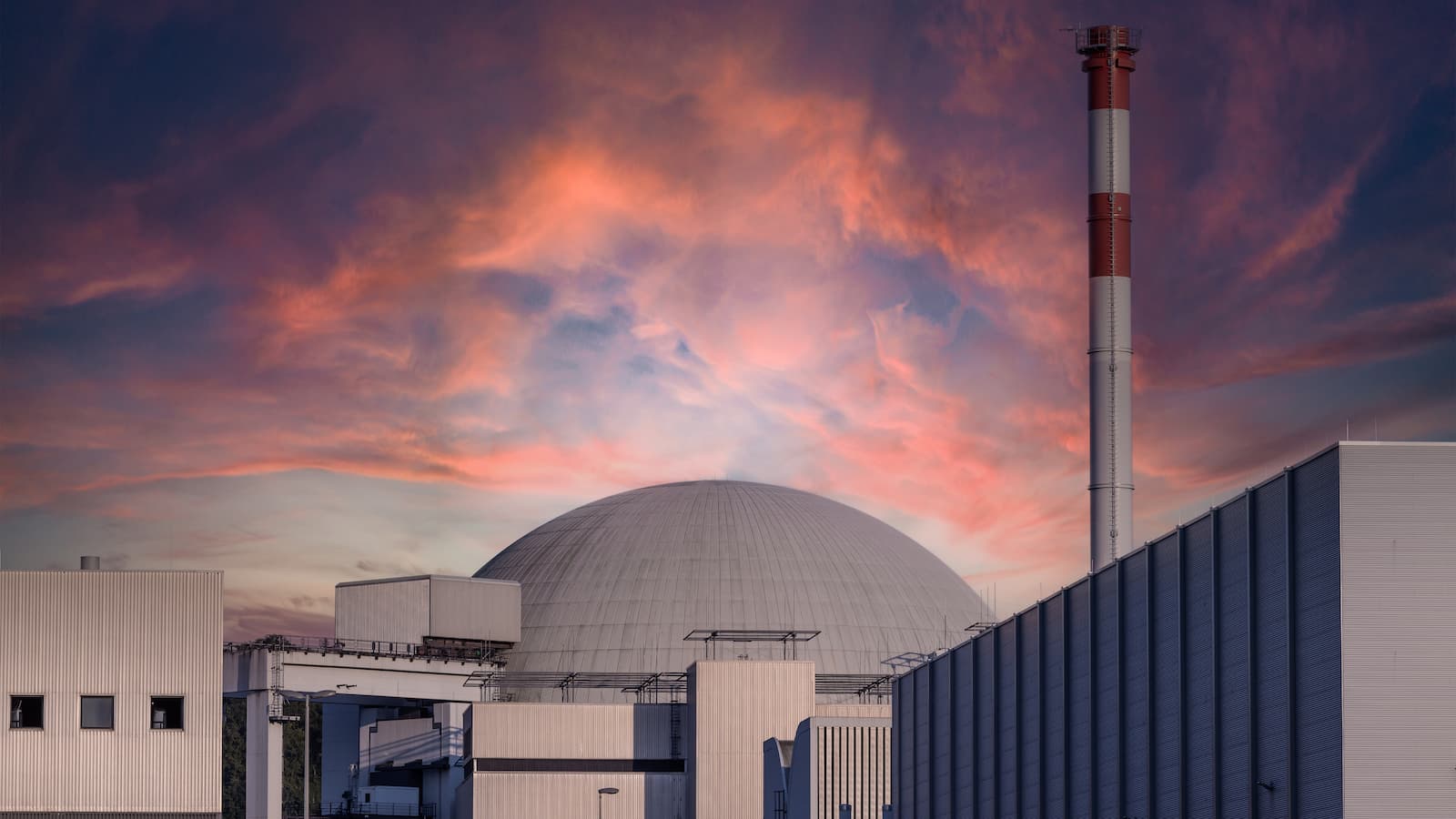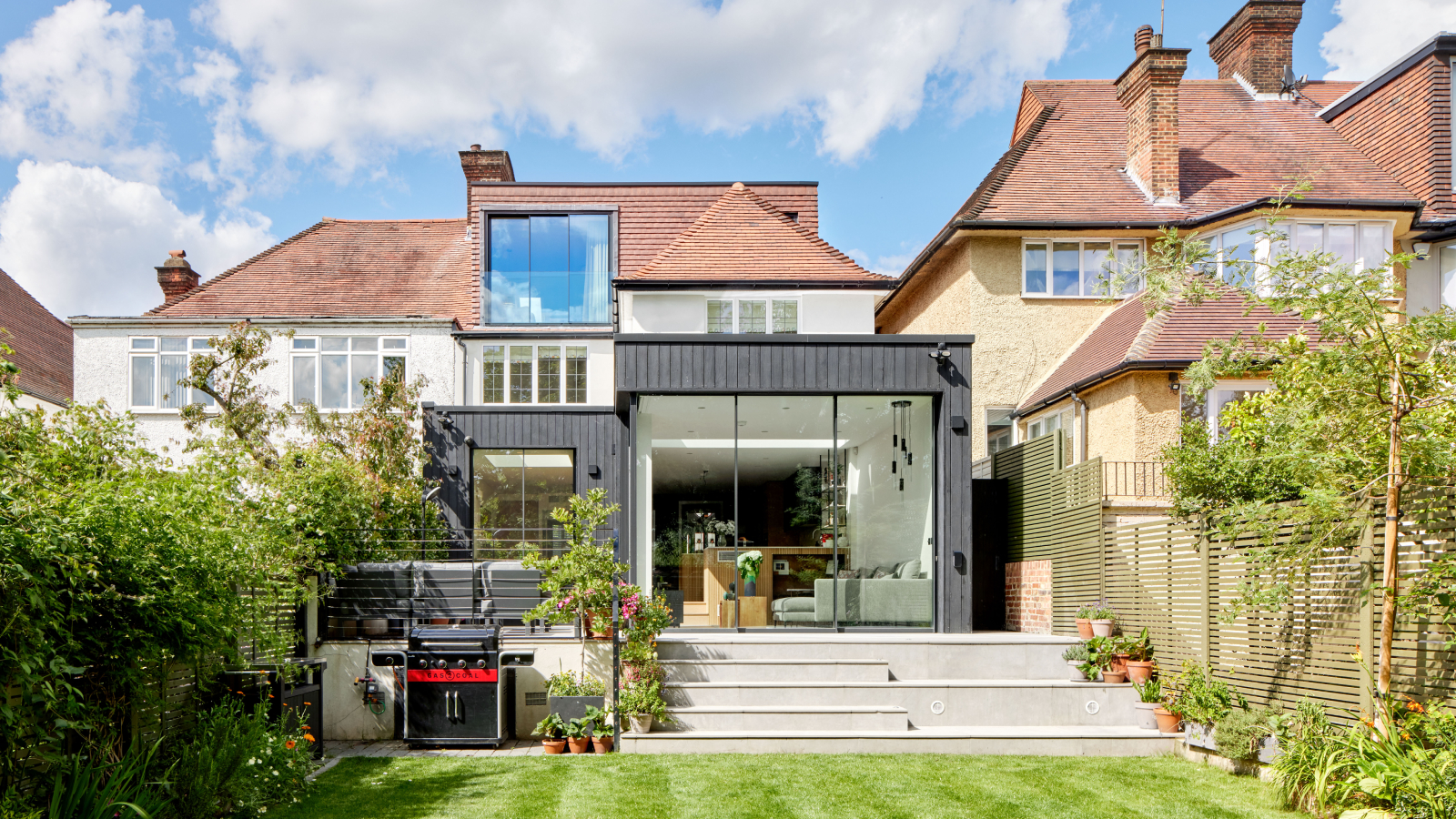Plan to relax planning rules to allow small nuclear reactors across the UK sparks backlash
"Small modular reactors" are set to be built across England and Wales after Keir Starmer relaxed planning rules but critics warn of costs, delays and local opposition

Bring your dream home to life with expert advice, how to guides and design inspiration. Sign up for our newsletter and get two free tickets to a Homebuilding & Renovating Show near you.
You are now subscribed
Your newsletter sign-up was successful
Opposition to Government's plans to introduce small modular reactors (SMRs) across England and Wales is growing, with critics arguing that the move could lead to unnecessary, unwanted and unsafe developments.
Keir Starmer introduced plans to build small modular reactors for the first time in the UK and announced changes to make it easier to gain planning permission to build nuclear reactors.
This shift has sparked concerns that communities across the country could face the negative consequences of having nuclear plants located near them, without sufficient consultation or input, as well as serious safety concerns.
What are small modular reactors?
Small Modular Reactors (SMRs) are a type of Advanced Nuclear Technology designed to be smaller, more flexible and easier to build than traditional nuclear power stations.
They are designed to be fabricated in a factory environment and transported to the site, reducing construction risks and costs.
SMRs fall under the Generation III water-cooled reactors category, meaning they function similarly to traditional nuclear reactors but on a smaller scale.
According to the Department for Energy Security & Net Zero, larger nuclear power stations produce over 1,000 megawatts (MW) of power whereas SMRs typically produce between 50 to 300 MW.
Bring your dream home to life with expert advice, how to guides and design inspiration. Sign up for our newsletter and get two free tickets to a Homebuilding & Renovating Show near you.
Rising concerns from local communities
While proponents argue that SMRs are key to achieving clean energy targets, many local residents and environmental groups have raised alarms.
An American-owned company called Last Energy intends to build one such plant next to the River Llynfi, just north of Bridgend in South Wales, as part of a broader national push for SMRs.
The Green Party in Wales has voiced opposition, suggesting that a nuclear plant in Bridgend would be “unnecessary, unwanted, and unsafe,” and could be the first of many plants imposed on communities across the UK.
A spokesperson for the Green Party said: “It is based on a new design which, if built, will be the first of its kind. So the design is untested in the real world. Locals, including Green Party members, have several credible reasons for concern.”
“The Green Party questions the need for a nuclear power plant, when the UK has the natural resources required to produce all its energy from a mixture of solar power, onshore and offshore wind generation.”
The party argues that Wales and other regions in the UK need secure, renewable energy supplies that are resilient in the face of severe climate events, not new nuclear plants.
Debra Cooper, the Green Party Chair for Bridgend, raised concerns about the level of local involvement in the consultation process for the proposed Bridgend nuclear plant.
This site in Bridgend has become a focal point for local opposition, but it is just one of many locations that could be impacted by the government’s loosening of planning restrictions.
Experts weigh in on the safety and risks of SMRs
The Alan Turing Institute published a paper highlighting both the potential benefits and challenges of SMRs.
It emphasised the need for public confidence in such projects, stating: "In demand globally, regulated internationally and delivered locally, the introduction of SMRs needs more than just engineering; it also needs public confidence. The Nuclear Industry Association recognises that the SMRs will only realise their potential if they are safe, secure and free of their current 'scariness.'"
However, the report also acknowledged the challenges of gaining local planning approval: “It will be challenging to secure planning permission at a pace necessary to sustain commercial investment and integrated security risk management."
It pointed out that growing local opposition is likely, especially in communities that may feel ill-prepared or under-informed about the safety and security of such technologies.
“Local emergency responders and incident management units will have a critical role in securing and maintaining public support,” the report noted, reflecting concerns over how communities might react to the introduction of SMRs in their areas.
Widespread opposition to nuclear expansion
The government’s decision to ease planning restrictions and allow nuclear plants to be built anywhere in England and Wales has ignited a wave of criticism.
Greenpeace, for instance, has argued that nuclear power is "incredibly expensive, hazardous, and slow to build," and suggested that funds would be better spent on renewable energy.
“The UK’s new Hinkley Point C reactor could cost over £46 billion by the time it’s finished, leading it to be called ‘the most expensive object on Earth.’ Such huge sums of money would be better invested in truly clean energy, such as wind power, which produces energy more cheaply,” Greenpeace said.
Additionally, delays in large-scale nuclear projects have led to concerns that the construction of SMRs could also be slow. Hinkley Point C, for example, was initially expected to start generating electricity in 2017 but is not expected to be operational until 2031.
Environmental campaigners, Friends of the Earth, have echoed similar concerns, with a study from the Tyndall Centre finding that nuclear safety risks are comparable to those of renewable energy technologies and significantly lower than fossil fuel-based power generation. Still, the group remains skeptical about nuclear's role in addressing energy needs.
“The risks associated with nuclear are significant,” said a Friends of the Earth spokesperson. “While SMRs may be safer than older reactor designs, the costs, long build times, and challenges with waste disposal remain unresolved issues.”
They emphasised that, “funding should be prioritised for cleaner, faster-to-deploy renewable energy sources rather than committing to an expensive, potentially dangerous nuclear expansion.”
UPDATE: The first of two 500 tonne nuclear reactors has been installed at EDF Energy's Hinkley Point C site in Somerset.A joint venture between Bouygues and Laing O’Rourke (BYLOR) is building the plant, which will feature Britain’s first nuclear reactor for more than 30 years.… pic.twitter.com/TM63TcQqyMDecember 4, 2024
Support for nuclear: safety and innovation
On the other side of the debate, advocates for SMRs argue that nuclear power is among the safest energy sources when measured by deaths per unit of electricity produced.
The World Nuclear Association points out that coal and gas power generation lead to thousands of deaths annually due to accidents and pollution, while nuclear power has far lower fatality rates.
“Many occupational accident statistics from the US and UK show that nuclear is a distinctly safer way to produce electricity compared to coal-fired power generation,” the World Nuclear Association reports.
Despite these safety arguments, critics remain cautious. They argue that while SMRs could provide a low-carbon energy solution, their deployment must be handled with extreme care.
The Alan Turing Institute has called for urgent research on the international experiences of rolling out SMRs, particularly the lessons learned by early adopters in the nuclear landscape.
“The successful introduction of SMRs in the UK will require comprehensive planning and consultation, including the involvement of local communities, emergency responders, and public engagement efforts,” the report concluded.
Legal and political challenges ahead
As the government moves forward with its nuclear agenda, local opposition is expected to intensify.
Critics argue that communities will struggle to oppose these developments legally, as the new planning reforms have significantly reduced avenues for challenging nuclear projects.
While the government is pushing for SMRs as a key part of the UK's energy strategy, some environmental groups argue that renewable energy technologies like wind and solar are safer, cheaper and faster to implement than nuclear power.
The success of SMR projects will likely depend on their ability to gain local support and overcome opposition. With protests and potential legal battles looming, the question remains: will the UK’s nuclear expansion be embraced, or will it face years of resistance from local communities across the country?

News Editor Joseph has previously written for Today’s Media and Chambers & Partners, focusing on news for conveyancers and industry professionals. Joseph has just started his own self build project, building his own home on his family’s farm with planning permission for a timber frame, three-bedroom house in a one-acre field. The foundation work has already begun and he hopes to have the home built in the next year. Prior to this he renovated his family's home as well as doing several DIY projects, including installing a shower, building sheds, and livestock fences and shelters for the farm’s animals. Outside of homebuilding, Joseph loves rugby and has written for Rugby World, the world’s largest rugby magazine.
